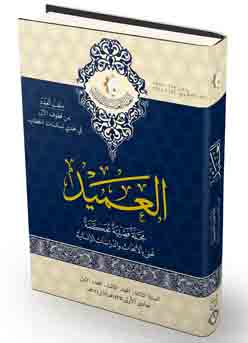Abstract
Abstract Discourse ethics was first introduced by the German philosopher and sociologist Jürgen Habermas\' )1929( as addressing theorists rather than practitioners .His theory of communicative action led him to develop a discourse ethics for argument )1984,1987,1990 and 1996(. This theory is based on the fact that as humans we are able to coordinate our actions jointly through language and communication which make us able to understand each other and construct agreement. The rational discussion and debate in communication seeking the force of the better argument may convey to agreement and not other factors that control discourse as power, rank or the dogma of tradition or religion. In making utterances (or debates) speakers implicitly make validity claims of Truth, Rightness and Sincerity (1990) that the better argument wins at the end of this ideal speech situation; in which participants equally have the opportunity to express their position and be heard. To persuade ,one should present a convincing argument, yet, one is free to say yes or no to the validity claims presented and respect the rights of others to do the same. It is an argumentation that is based on moral universalization .This marker (of universalization) indicates what is ethically valid; (i.e,)validity claims are justified and tested against the principle of universalization to reach a mutually satisfying agreement since reason is universal. Habermas delineates a formal ethical approach for argumentation between pluralistic societies that differ in values and have no single moral authority, yet, they can resolve conflict and reach rational consensus because there is a foundation of morality in the pragmatic presuppositions of the discourse itself.He relies on pragmatics of language that mediates human actions through the process of communication; a sort of communicative rationality to actions that are oriented towards reaching mutual understanding or mutual agreement by means of shared interpretations of the world achieved .Habermas theory of Discourse Ethics is taken in this study as a model to analyze a debate from the tradition of Imam JafarAs-Sadiq (A.S ), as his tradition is rich in this aspect. This debate is with an atheist )Abu Shakir As….( which is translated faithfully into English By K.A. Mirza )2012(. This shows the force of the Imam\'s argument and the extent to which he presents influential reasoning and communicative rationality to win over by depending on validity claims that are considered by him and his interlocutor.
Abstract
ملخص البحث ان أول من قدم اخلاقيات الخطاب هو عالم الاجتماع والفيلسوف الالماني يورغن هابرماس (9291) مخاطبا بها منظروا الخطاب وليس ممارسوه. وقد قادته نظرية الفعل التواصلي الى ان يطور اخلاقيات المحاججة (4891و7891و0991و6991)، وتستند هذه النظرية الى حقيقة اننا بوصفنا بشر نتمكن من تنسيق أفعالنا مجتمعة من خلال اللغة والتواصل مما يجعلنا قادرين على فهم بعضنا البعض وبناء الموافقة, فالنقاش والحوار العقلائي عند التواصل بحثا عن الحجة الاقوى يوصلنا الى الموافقة وليس عناصر الخطاب الأخرى مثل القوة او الدرجة او العقيدة والدين.فعند تشكيل الألفاظ (او عند المجادلة) يقدم المتحدثون حجج نافذة متمثلة بقول الحقيقة و الصحة والأمانة (0991) كي يفوز الجدل الأحسن نهاية المطاف في هذا الموقف الكلامي المثالي الذي يتمتع فيه المشاركون بفرص متساوية للتعبير عن مواقفهم ويجدوا إصغاء. ومن اجل ان يكون الشخص مقنعا عليه ان يقدم حجة مقنعة أيضا وعلى الرغم من هذا فانه حر في ان يقول نعم او لا للحجج النافذة المقدمة ويحترم حق الأخر للقيام بعمل مماثل.فهذا الجدال مستند الى عالمية اخلاقية وهذا المؤشر من الكونية يبرهن ماهو صالح أخلاقيا اذ يجري تبرير واختبار الحجج النافذة وفق مبدا الكونية بغية الوصول الى موافقة (او تسليم) مرض مشترك طالما ان المنطق مفهوم عالمي. يخط هامبرز منهجا أخلاقيا للمجادلة في المجتمعات التعددية التي تختلف في القيم وليس لها مرجعية أخلاقية موحدة او مطلقة .ومع هذا يمكن ان نحل النزاع ونصل لاجماع عقلائي لان هناك أساس للأخلاق في الافتراضات التداولية للخطاب نفسه.ويستند هبرماس على تداولية اللغة التي تتوسط الافعال البشرية من خلال التواصل بنمط من العقلائية التواصلية للافعال التي تتجه للوصول الى الفهم او الموافقة المشتركة بسبب الوصول الى تفسيرات مشتركة للعالم المتحقق. تتخذ هذه الدراسة نظرية اخلاقيات الخطاب لهابرماس منهجا لتحليل نموذج الغني الوافر.وهذا الاحتجاج من الاحتجاج من موروث الامام الصادق حدث مع الكافر ابو شاكر الديصاني وترجمها بامانة الى اللغة الانجليزية كوكب علي ميرزا (2102 ). ويبين البحث قوة وحسن المجادلة اذ يتبع الامام منطقا مؤثرا وعقلائية تواصلية ليفوز بالمجادلة اعتمادا على على فعل التواصل وصحة الادعاء التي يراعيها الامام ومن يخاطب.
